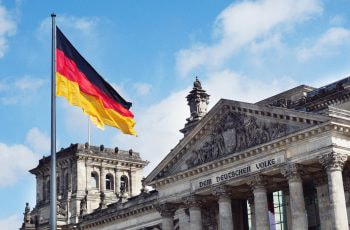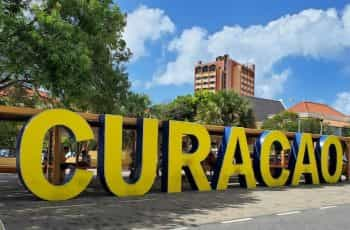Tender Launched to Privatize WestSpiel
In partnership with professional services firm Warth & Klein Grant Thornton AG, North Rhine-Westphalia’s Ministry of the Interior has begun a tender process with the intent of privatizing the state’s land-based monopoly operator Westdeutsche Spielbanken, commonly known as WestSpiel. Shares held by state-owned banking group NRW.Bank are set to be sold as part of this process.

North Rhine-Westphalia’s Ministry of the Interior has launched a tender process to privatize the state’s land-based monopoly operator Westdeutsche Spielbanken, also known as WestSpiel. The move was executed in partnership with professional services firm Warth & Klein Grant Thornton AG. ©pixel2013/Pixabay
Operator May Have Opportunity to Obtain Concession for iGaming
The tender to be launched by North Rhine-Westphalia’s Ministry of the Interior, in collaboration with a hired professional services firm Warth & Klein Grant Thornton AG, will essentially grant the highest bidder a 15-year monopoly over all land-based gaming in one of Germany’s most symbolically important states.
The unveiling of the tender launch arrives together with a statement that Germany’s most populous and wealthiest state’s land-based monopoly operator Westdeutsche Spielbanken, also known as WestSpiel, has excellent prospects for success, thanks to its wide-reaching monopoly status.
Also noted in the announcement is the fact that WestSpiel might have the opportunity to obtain a concession for online casino gambling under the Glücksspielneuregulierungstaatsvertrag (GlüNeuRStV) gambling treaty, which is scheduled to be affected into law from July 2020.
Latest Treaty on Gambling Set to Transform German Betting Landscape
The latest Glücksspielneuregulierungstaatsvertrag (GlüNeuRStv) legislation is intended to broaden the scope of igaming in Germany through allowing for more forms of online betting to exist within in the country.
Once the newly regulated gambling market is established as a result of the treaty, the online gambling market in Germany will open up to virtually all forms of gambling. This will see online casino games, like slot games as well as poker, and sports betting legalized nationwide.
One of the most contentious restrictions scheduled to be placed on sports betting as a result of the latest gambling treaty is the decision to limit the markets that consumers can bet on. Once the new legislation is introduced, users will be significantly more limited in their live betting options.
There is currently a €1,000 deposit limit for players in place across all igaming operators. This will also be accompanied by a stake limit on licensed slot machines, set at €1 per spin. Slot machine operators will also be forbidden from including any autoplay features in their games, with jackpots also becoming outlawed.
Gambling advertising in particular will be heavily regulated as a result of the Glücksspielneuregulierungstaatsvertrag (GlüNeuRStv) treaty, with German states electing to impose a gambling advertising blackout between the hours of 6 AM and 9 PM across all of Germany.
Despite widespread criticisms such as broadcaster revenue being threatened by both the curtailment of advertising, as well as overall market stagnation, along with concerns from industry experts that such an advertising blackout could incite players to gamble with unlicensed offshore providers — German ministers finally came out and ratified the legislation in October 2020.
Bidders Must Meet Strict Criteria to Be Considered in Tender Deal
Just because the tender process to privatize one of Germany’s major gambling monopolies has been widely announced does not mean WestSpiel will simply be doled out to the first bidder in line.
A strict set of minimum criteria has been included alongside the tender deal announcement, which bidders must abide by in order to be considered in the first place.
One of these principal criteria is the need for bidders to demonstrate “competence and permission” in the operation of their gambling platforms, such as tangible proof that they are conducting regular and thorough know-your-customer checks.
Additionally, these bidders must prove that they have capital of at least €20 million on hand, while also naturally being able to demonstrate that they are able to put down a security deposit in the event that their bid for taking over WestSpiel is accepted.
In the further event where multiple bidders qualify for these set-out minimum criteria, their bids will be whittled down to just three in accordance with yet another set of pre-established criteria.
These factors include considerations such as the quantity of casinos the bidders have operated within the last 36 months, the average number of employees employed during this time period, and the average turnover gained from gambling and additional income revenue streams, such as food and drink.
At this stage, the tender betting process starts to begin resembling a sports tournament of sorts, with the three finalist bidders then stepping into an offer and negotiation stage.
After this point in the betting process, the highest two initial bids advance to a stage where a “best and final offer” will be presented. However, NRW.Bank, the state development bank of North Rhine-Westphalia, also has the right to accept a bid on the sole basis of a first initial offer.
Additionally, all bidders must fully complete the necessary tender forms by February 1st, 2021 at the very latest.
Meanwhile, WestSpiel’s currently existing casinos in the state will now be subject to a 30% gross revenue tax for all income generated of up to €15 million. This tax rate is then set to increase by 10% for every €15 million increment.
The new owners of the WestSpiel monopoly will also be allowed to build two new additional casinos, which are set to be taxed at 25% of gross revenue within the first two years of their operation.
Sale of WestSpiel Is Part of North Rhine-Westphalia’s Casino Privatization Bill
It was in May 2018 that the state government of North Rhine-Westphalia first announced that it would undertake the process of selling off the state’s largest gambling monopoly, WestSpiel.
The influential operator, which runs casinos in cities such as Aachen, Bad Oeynhausen, Dortmund-Hohensyburg and Duisburg, as well as two more in the Free Hanseatic City of Bremen, employs a workforce of approximately 900 employees.
Then, in June 2020, the legislature of North Rhine-Wesphalia passed a bill intended to help speed along the WestSpiel privatization process. It was here that the general terms for the tender were initially established.
The bill subsequently faced notable pushback from the Social Democratic Party (SPD), as well as the Bündnis 90/Green and Alternative für Deutschland (AfD) parliamentary factions, all of which contended that the bill had been rushed through the legislative process.
A further point was made by the factions, in that that North Rhine-Westphalia would risk losing out on state government taxes as a result of the legislation.
Further complicating the matter was a special session of the North Rhine-Westphalia state legislature, which met in July 2020.
Here, the Social Democratic Party (SPD) stepped out in accusing the dominant Christian Democratic Union (CDU) and Free Democratic Party (FDP) parties of suspicious balance sheet tricks in order to make the privatization process appear more attractive to bidders, with the goal of concluding the bidding process as quickly as possible.
The details of the tender, meanwhile, indicate that WestSpiel’s gross gaming revenue (GGR) for 2019 sat at €117.2 million.



